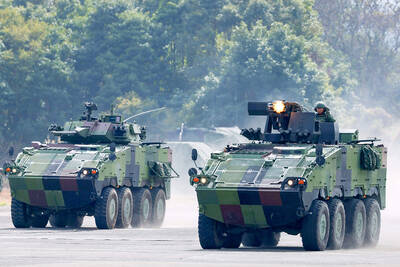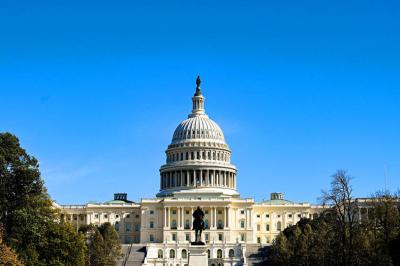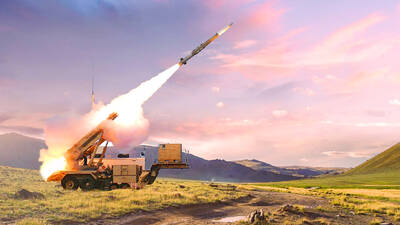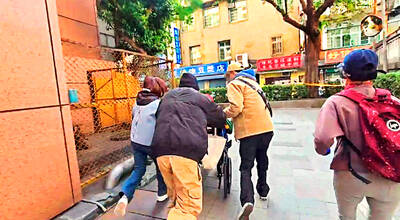The Executive Yuan has not given up on proposing a same-sex marriage bill this year, Premier William Lai (賴清德) said yesterday.
Lai made the remark at the legislature in Taipei in response to questions from Chinese Nationalist Party (KMT) Legislator Jason Hsu (許毓仁), a proponent of legalizing same-sex marriage.
Saying that Germany in June passed a marriage equality bill to grant registered same-sex couples the same legal status as heterosexual couples, Hsu asked Lai when the Executive Yuan plans to put forward a same-sex marriage bill.
Asked whether he supports same-sex marriage, Lai said he does, adding that the Executive Yuan is working on a bill and has not ruled out submitting a proposal before the legislative session ends at the end of the year.
Lai on Tuesday told KMT Legislator Ko Chih-en (柯志恩) that it would be difficult for the Executive Yuan to propose a same-sex marriage bill during the current session, which is focused on reviewing budget requests from central government agencies.
Lai yesterday told Hsu that the Executive Yuan is still discussing the bill’s details.
He said the Executive Yuan would follow Constitutional Interpretation No. 748 that was issued by the Council of Grand Justices in May and put forward a bill that is more likely to win the approval of most people.
The Executive Yuan would not delay moving the major policy forward, Lai said.
Later in the day, Democratic Progressive Party Legislator Lee Chun-yi (李俊俋) asked Lai why wages in the private sector have not increased, despite an economic recovery.
Exports have risen for 13 straight months; the TAIEX has stayed above 10,000 points for a record 98 days; and per capita GDP and foreign exchange reserves are expected to reach US$25,000 and US$45 billion respectively next year, Lee said.
However, the average salary last year, NT$46,422, was lower than that in 2000, NT$46,606.
Lai said it was because local industries are still in a transitional period, and exports have been heavily reliant on China, which hurt the nation’s trade.
Citing a survey released last month by online job bank yes123, Lee said that despite Lai’s hope that a proposed 3 percent wage hike for public employees would encourage the private sector to follow suit, only 7 percent of private companies surveyed said they would consider giving their employees an across-the-board raise.
The “serious problem” of Taiwanese being paid meager salaries is due in part to a lack of legal basis for separating their minimum wage from what foreign blue-
collar workers make, which averages just below NT$20,000, marginally below the legal minimum wage for Taiwanese, NT$22,000.
However, the work of foreign employees, many of whom are caregivers, and Taiwanese workers by and large are very different in nature, he said.
He called on the Cabinet to evaluate whether setting foreign workers’ minimum wage at NT$22,000 would pressure employers to raise salaries for local workers.
He urged the Cabinet to complete such an assessment by June next year, when the wage increase for public employees is set to take effect.
Lai agreed, adding that small and medium-sized enterprises are granted tax deductions if they raise employee salaries by a given margin.

Taiwan must first strengthen its own national defense to deter a potential invasion by China as cross-strait tensions continue to rise, multiple European lawmakers said on Friday. In a media interview in Taipei marking the conclusion of an eight-member European parliamentary delegation’s six-day visit to Taiwan, the lawmakers urged Taipei to remain vigilant and increase defense spending. “All those who claim they want to protect you actually want to conquer you,” Ukrainian lawmaker Serhii Soboliev said when asked what lessons Taiwan could draw from Russia’s invasion of Ukraine. Soboliev described the Kremlin as a “new fascist Nazi regime” that justified

The US House of Representatives yesterday passed the PROTECT Taiwan Act, which stipulates that Washington would exclude China from participating in major global financial organizations if its actions directly threaten Taiwan’s security. The bill, proposed by Republican US Representative Frank Lucas, passed with 395 votes in favor and two against. It stipulates that if China’s actions pose any threat to Taiwan’s security, economic or social systems, the US would, “to the maximum extent practicable,” exclude China from international financial institutions, including the G20, the Bank for International Settlements and the Financial Stability Board. The bill makes it clear that China

‘T-DOME’: IBCS would increase Taiwan’s defense capabilities, enabling air defense units to use data from any sensor system and cut reaction time, a defense official said A defense official yesterday said that a purported new arms sale the US is assembling for Taiwan likely includes Integrated Battle Command Systems (IBCS). The anonymous official’s comments came hours after the Financial Times (FT) reported that Washington is preparing a US$20 billion arms sale encompassing “Patriot missiles and other weapons,” citing eight sources. The Taiwanese official said the IBCS is an advanced command and control system that would play a key role in President William Lai’s (賴清德) flagship defense program, the “T-Dome,” an integrated air defense network to counter ballistic missiles and other threats. The IBCS would increase Taiwan’s

NOMINAL NEWLYWEDS: A man’s family and his wife — his long-term caregiver — are engaged in a legal dogfight over the propriety and validity of the recent union A centenarian’s marriage to his caregiver unbeknownst to his children has prompted legal action, as the caregiver accuses the man’s children of violating her personal liberty and damaging her reputation, while the children have sought a legal option to have the marriage annulled. According to sources, the 102-year-old man surnamed Wang (王) lives in Taipei’s Zhongshan District (中山) and previously worked as a land registration agent. Wang reportedly owns multiple properties and parcels of land worth several hundred million New Taiwan dollars and has ten children. His caregiver, a 69-year-old surnamed Lai (賴), has been caring for him since about 1999,